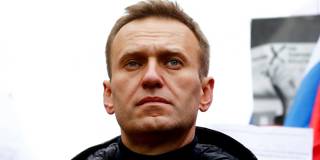The prime suspect in Alexei Navalny’s death is obvious. But, while Russian President Vladimir Putin’s role is all but undeniable, there is a silent accomplice whose part in this tragedy must not be ignored: the economic policies adopted in the early 1990s.
CAMBRIDGE – The world was stunned, though perhaps not surprised, by the death this month of Alexei Navalny, the Russian opposition politician and Kremlin critic, in an Arctic penal colony. The converted gulag in which he died, called “Polar Wolf,” reserved for hardened criminals rather than political prisoners, was known for its harsh conditions, and Navalny had been tortured extensively.
Still, the circumstances of the sudden death of Navalny – who had made a cheerful court appearance the previous day – were mysterious. At 47, Navalny was still young, and the plans he was actively making suggested that he remained hopeful for the future. So, the signs don’t point to a death from “natural causes,” as the Russian authorities claimed.
Navalny was, of course, living on borrowed time after years exposing the corruption of President Vladimir Putin’s regime. In 2020, the most serious attempt on his life – a near-fatal poisoning with a military-grade nerve agent, Novichok – failed when he was flown to Germany for emergency treatment. Aware of the fate that awaited him in a country where the line between a prison sentence and a death sentence is dangerously thin, he nonetheless chose to return to Moscow, where he was arrested on arrival and ultimately handed a 19-year prison term.

CAMBRIDGE – The world was stunned, though perhaps not surprised, by the death this month of Alexei Navalny, the Russian opposition politician and Kremlin critic, in an Arctic penal colony. The converted gulag in which he died, called “Polar Wolf,” reserved for hardened criminals rather than political prisoners, was known for its harsh conditions, and Navalny had been tortured extensively.
Still, the circumstances of the sudden death of Navalny – who had made a cheerful court appearance the previous day – were mysterious. At 47, Navalny was still young, and the plans he was actively making suggested that he remained hopeful for the future. So, the signs don’t point to a death from “natural causes,” as the Russian authorities claimed.
Navalny was, of course, living on borrowed time after years exposing the corruption of President Vladimir Putin’s regime. In 2020, the most serious attempt on his life – a near-fatal poisoning with a military-grade nerve agent, Novichok – failed when he was flown to Germany for emergency treatment. Aware of the fate that awaited him in a country where the line between a prison sentence and a death sentence is dangerously thin, he nonetheless chose to return to Moscow, where he was arrested on arrival and ultimately handed a 19-year prison term.